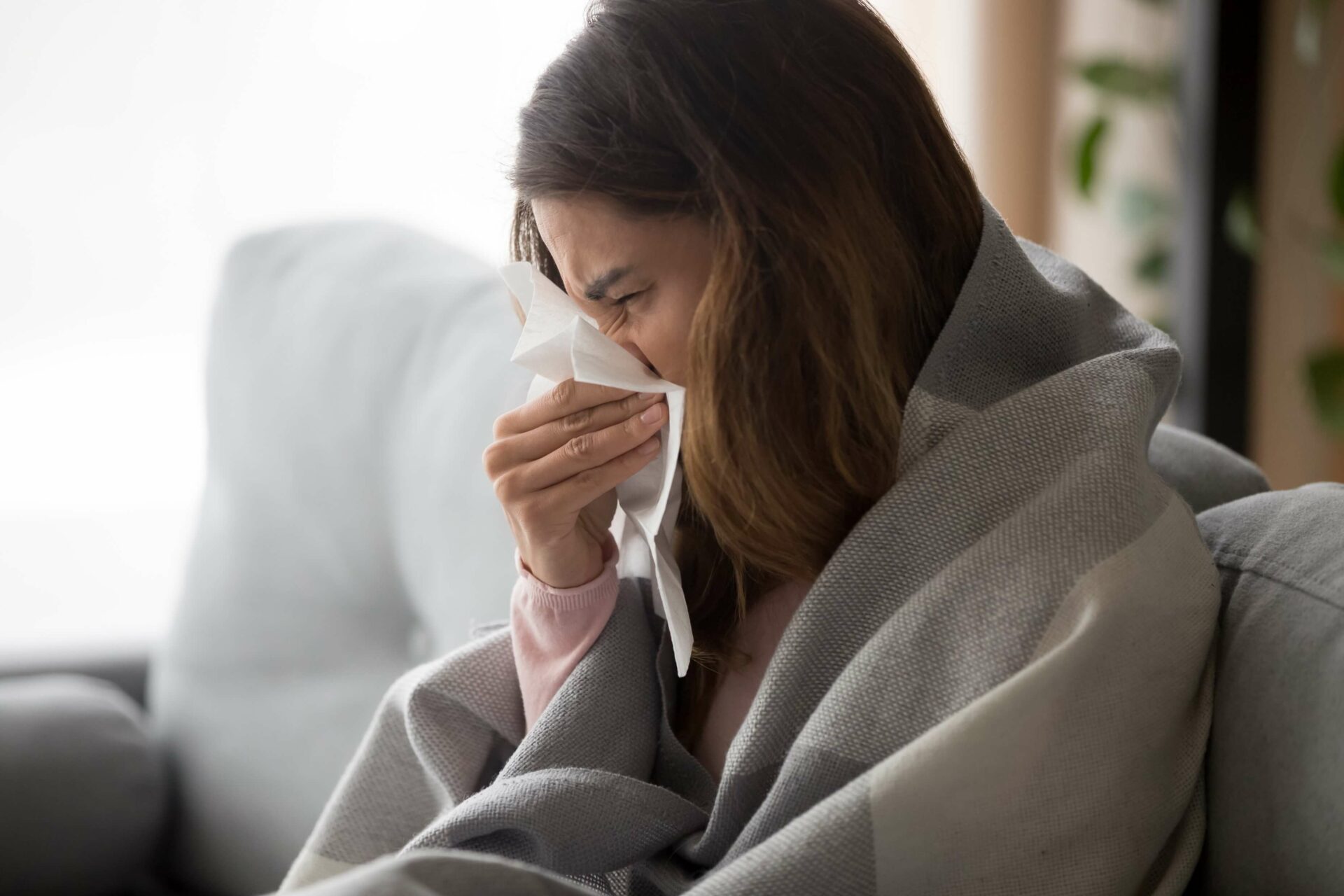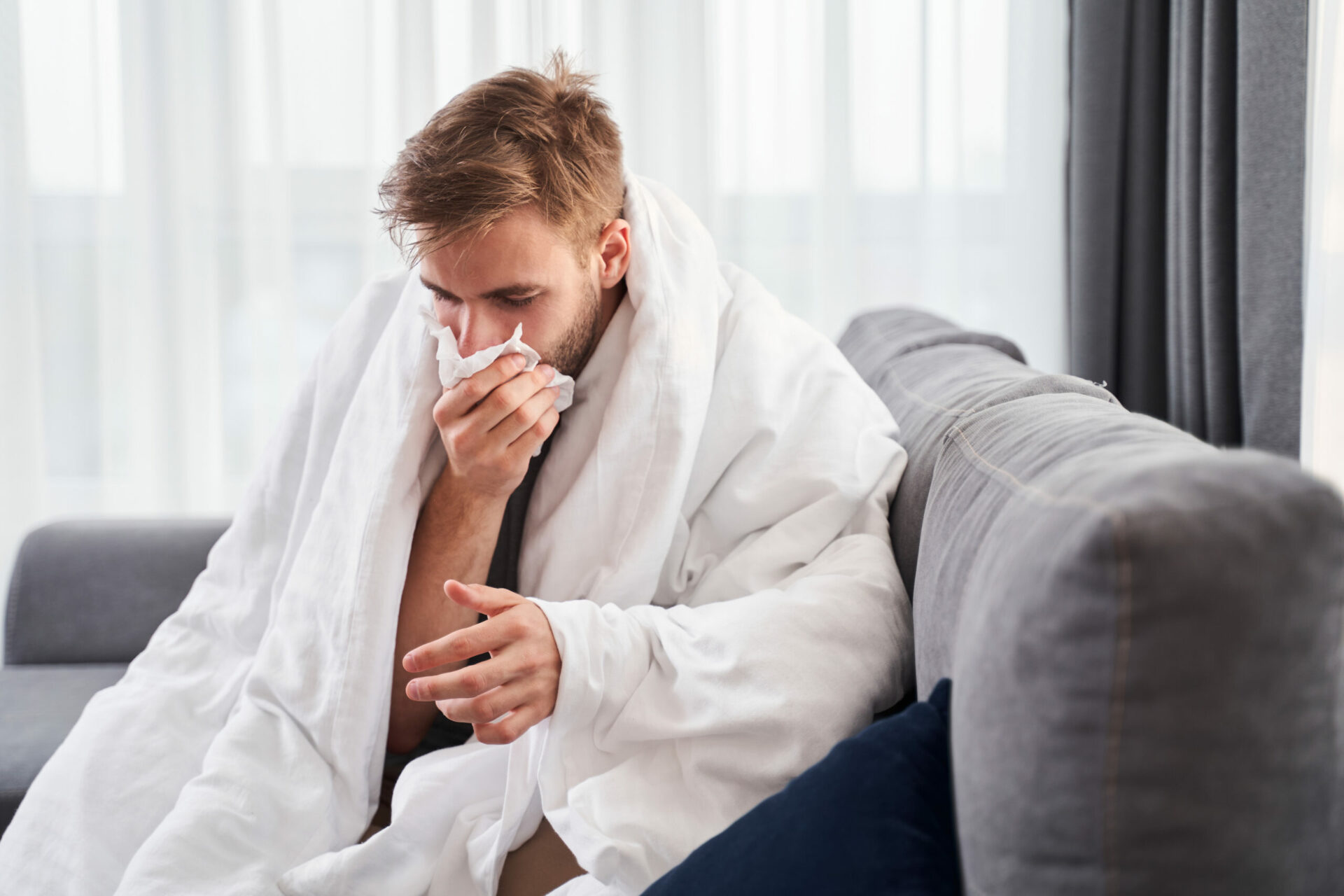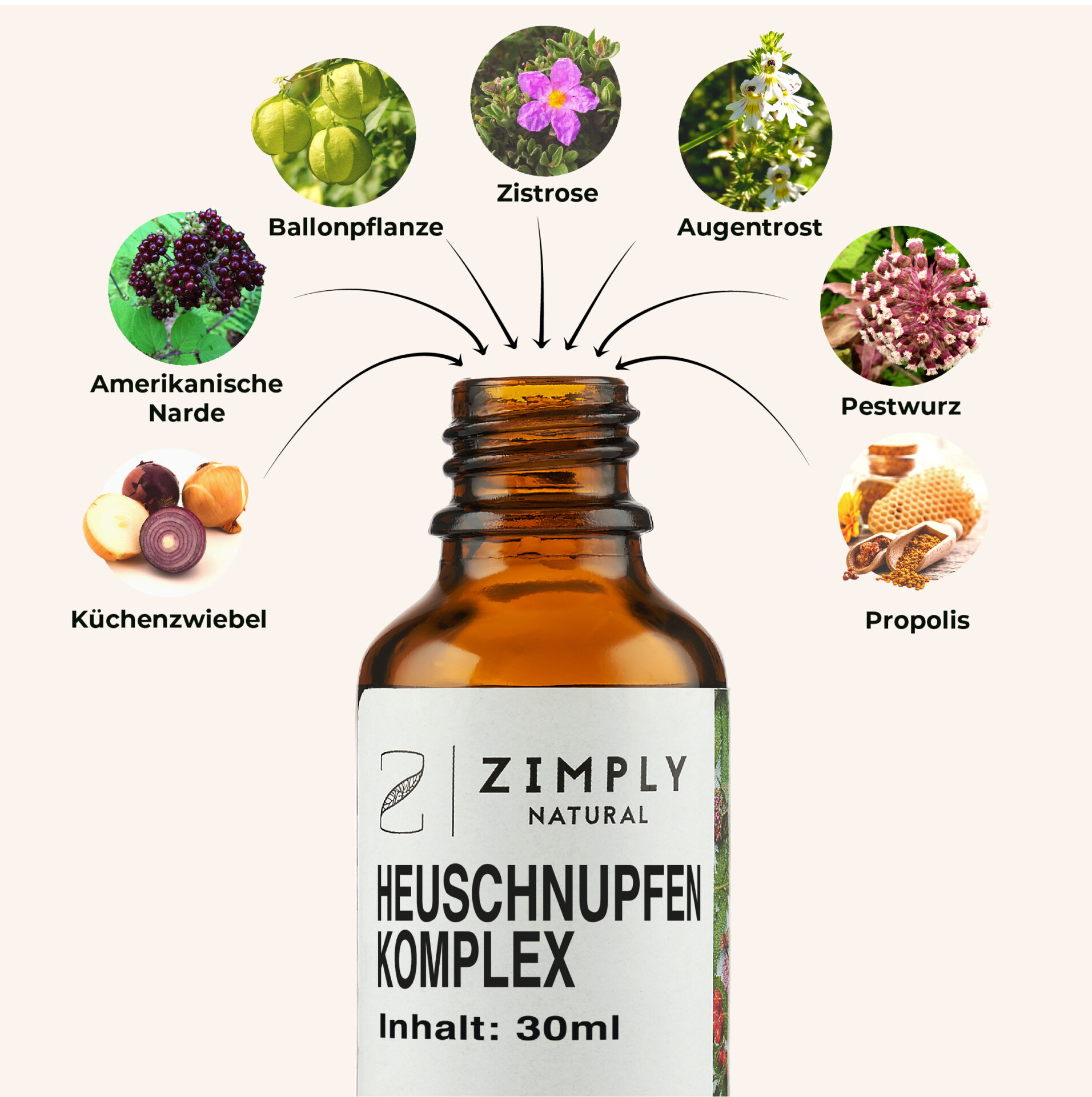
Your individual hay fever mixture!
With natural methods, such as the individual spagyric mixtures from Zimply Natural, your hay fever can be treated and sustainably alleviated. And completely adapted to you and your situation.
Hay fever is a very widespread form of allergy. In the so-called pollen allergy, the body reacts to certain proteins from plant pollen in the air, which it classifies as a danger and fights against. Runny nose, watery eyes, itching and constant sneezing: The typical hay fever symptoms occur, which are often more than unpleasant and can represent a considerable restriction of everyday life for those affected.
Conventional therapy options with antihistamines or cortisone block the messenger substance histamine, which is responsible for the allergic reaction, or fight the inflammation caused by it. But there are also ways to relieve hay fever symptoms in a holistic, natural way! Find out here how homeopathy can help with hay fever and what other, plant-based remedies are available that are effective for pollen allergy.
Table of contents
- The symptoms of hay fever: How does a pollen allergy manifest itself?
- Immune system out of control: This is how an allergy to pollen develops
- What are the causes of hay fever
- What are the treatment options for pollen allergy?
- Homeopathy for hay fever: Natural alternatives to conventional allergy treatment
- Natural and holistic: effective plant power against hay fever
- Homeopathy for pollen allergy: Here's how Zimply Natural can help with hay fever
- Home remedies for hay fever: these tips can relieve allergy symptoms
- FAQ: Questions and answers about homeopathy for hay fever
The symptoms of hay fever: How does a pollen allergy manifest itself?
When you start from Hayfever is affected, the Immunesystem hypersensitive to certain irritants that are not dangerous in themselves - in the case of a pollen allergy, these are pollen. The body classifies them as dangerous and fights them with antibodies, which in turn produce messenger substances against the "intruders".
When the allergen comes into contact again, the messenger substances then release further chemical substances that cause inflammatory processes in the body - this reaction manifests itself in a variety of symptoms typical of hay fever.
- red, watery or even itchy eyes up to persistent conjunctivitis
- stuffy or runny nose
- increased sneezing up to sneezing attacks
- swollen mucous membranes of the nose and/or mouth
- Skin reaction (rash)
- Neck scratching
- Cough, which may even develop into allergic asthma
- Headache & Migraine
- Sleep disorders
- reduced efficiency
Immune system out of control: This is how an allergy to pollen develops
Pollen allergy is an allergy of the immediate type (type I), in which IgE antibodies (class E) are involved. On contact with the allergens, certain messenger substances - histamines and mediators - are released, which cause the organism's defense reactions, some of which are severe. As a rule, only a few allergens are sufficient to trigger an allergic reaction in allergy sufferers.
Normally, pollen does not pose a threat to the human body. However, in the case of hay fever, the immune system overreacts - it perceives pollen as a threat and releases antibodies to fight it. In hay fever sufferers, the immune system produces specific antibodies called IgE antibodies, which bind to mast cells in the body after being released.
Upon renewed contact with allergens - in the case of hay fever, pollen - these mast cells are then activated by IgE antibody binding. Among other things, the mast cells release histamine - a messenger substance that causes the typical hay fever symptoms - for example itching, watery eyes, a runny or stuffy nose.
What are the causes of hay fever?
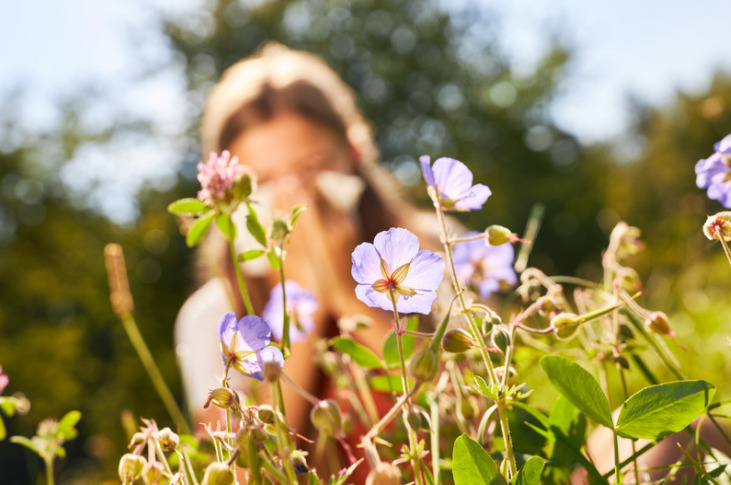
Hay fever, also known as allergic rhinitis, is caused by an allergic reaction to certain substances in the air.
It occurs because the body's immune system reacts to an allergenic substance that it considers a threat. The organism then releases, among other things, the messenger substance histamine, which is responsible for the symptoms of hay fever.
The main triggers of hay fever are pollen (for example from trees, shrubs, grasses or flowers). Contact with mold spores, animal hair, dust mites or fine dirt particles in the air can aggravate the symptoms of a pollen allergy.
Hay fever occurs most frequently in spring and summer. However, many sufferers have to struggle with symptoms as early as February and into the fall.
... It is not yet clearly understood why some people are allergic to pollen and others are not. However, certain risk factors can favor the development of a pollen allergy.
These include, for example, a genetic predisposition, environmental factors such as air pollution, and individual lifestyle (smoking, an unhealthy diet, or stress).
Almost 15% of Germans are affected by hay fever. In most cases, an allergy to pollen develops in childhood and adolescence, but can also occur for the first time at a more advanced age.
What are the treatment options for pollen allergy?
Anyone suffering from hay fever can resort to a number of different treatment options, depending on the type and severity of the symptoms:
- So-called antihistamines are usually used to treat hay fever with medication. They block the effect of the symptom-triggering messenger substance histamine and thus reduce symptoms such as sneezing or itching, reddening of the eyes or running of the nose. Even though hay fever preparations have recently become significantly more tolerable, taking them can be accompanied by fatigue and other side effects.
- Also preparations containing cortisone can alleviate hay fever symptoms and provide relief from discomfort. Before taking them, you should always seek medical advice, as these medications can sometimes have strong side effects or interactions.
- Nasal sprays containing active ingredients can help reduce swelling and inflammation in the nose.
- Eye drops, which contain antihistamines or steroids, relieve symptoms such as watery and itchy eyes.
- For the long-term treatment of a pollen allergy, a specific immunotherapy (SIT) be useful, in which the body is gradually accustomed to increasing doses of allergens, including pollen. In this way, the immune system should be desensitized and the allergic reaction of the organism reduced.
Which pollen allergy treatment is most suitable depends primarily on the type and severity of the symptoms in question.
Homeopathy for hay fever: Natural alternatives to conventional allergy treatment
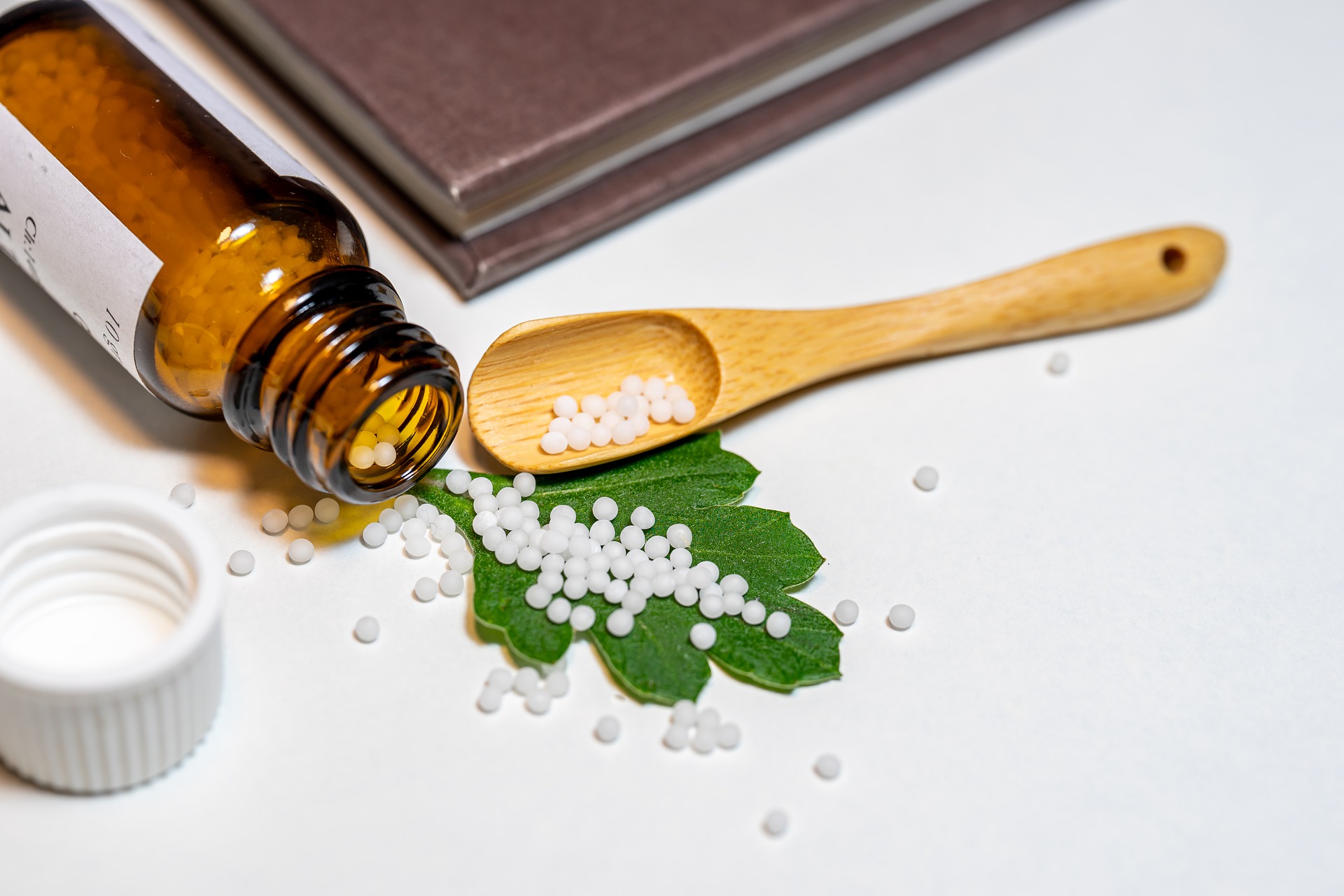
The typical hay fever symptoms, such as red, itchy or watery eyes or a runny nose, can sometimes be very pronounced and greatly restrict the daily lives of those affected. Fortunately, there are herbal alternatives for allergy treatment that are very well tolerated compared to conventional preparations.
Naturopathic remedies or globules can often bring relief from hay fever. However, in order to build up their specific effect, they usually have to be used over a longer period of time. They also have a supporting and strengthening effect on the immune system as a supplement to conventional treatment with antihistamines.
In addition, home remedies and homeopathy for allergies are usually completely free of side effects such as fatigue, fatigue or concentration problems that often occur with classic antihistamines.

Your individual hay fever mixture!
Alleviate typical hay fever complaints with homeopathy: Our individually formulated plant-based spagyric sprays relieve hay fever symptoms sustainably, gently and well tolerated!
Natural and holistic: effective plant power against hay fever
There are some medicinal plants that can help you naturally with hay fever. These include:
- Cistus (Cistus incanus) - a medicinal plant native to the Mediterranean region with antioxidant, antimicrobial and relaxing effects, which has been used for centuries for external and internal infections.
- Butterbur (Petasites officinalis), a composite, with anti-allergic action, whose effect is comparable to that of synthetic antihistamines.
- Propolis, the putty resin of bees, which has an immune-boosting effect.
- Heart Seeds (Cardiospermum halicacabum) - the seeds of the balloon vine have a cortisone-like effect, lower histamine levels and stop inflammation, so that hay fever symptoms can be significantly alleviated.
- Eyebright (Euphrasia officinalis), a summer herb that has a soothing effect on infectious or allergic inflammation of the conjunctiva.
Based on your physical condition and your complaints, we compose the ingredients of your natural Zimply Natural medicinal plant sprays individually for you. We transmit the composition to one of our partner pharmacies, where your personal spagyric spray is then mixed for you.
After completion, you can pick it up at the pharmacy of your choice or have it delivered to your home. Thanks to your personal product number, you can easily and quickly reorder it at any time!
Homeopathy for pollen allergy: Here's how Zimply Natural can help with hay fever
Because hay fever symptoms are as individual as the people who suffer from them, treatment should also be as individual as possible. Instead of suppressing your symptoms in the short term, we want to give you a naturally effective means to bring you closer to a healthy normality in the long term.
With Zimply Natural, you can create your personal blend for hay fever in just three minutes and then easily reorder it over and over again with your own blend number.
Configure now your individual Zimply Natural hay fever spray
Use our Configurator and in just a few minutes you can create your very own personal medicinal plants spray mixture against hay fever together. Whether itching, watery eyes, sneezing or runny nose: Thanks to effective ingredients from nature, hay fever sprays can help relieve typical allergy symptoms and promote your well-being. Your immune system is strengthened and inflammations caused by contact with allergy-causing pollen are alleviated.
...the effect of our spagyric sprays is based on naturopathic knowledge, some of which has been used for thousands of years? The unique composition of our effective essences is based on over 100 medicinal plant extracts and essences of natural origin. Symptoms typical of hay fever can thus be treated and alleviated sustainably and holistically.
Instead of short-term suppression of complaints, we focus on long-term support of health and well-being. To achieve an optimal effect, our natural medicinal plant sprays, which are simply sprayed into the mouth, should be used over a longer period of six to eight weeks. This allows them to develop their effect in the best possible way. Optional insert if needed. Section can also be omitted.
Home remedies for hay fever: these tips can relieve allergy symptoms
Improvement in hay fever can often be achieved by avoiding contact with allergy triggers and, for example, not spending excessive time or frequency outdoors during the peak pollen season. Wearing sunglasses can help reduce pollen contact with the eyes.
If possible, sports activities should not take place outdoors during the hay fever season, as the organism can react even more strongly to pollen due to the movement and the associated stimulation of the immune system and metabolism.
If you suffer from hay fever, you should also take care at home to keep pollen disposition as low as possible.
- If possible, do not take off your street clothes in the bedroom.
- Wash or brush your hair thoroughly in the evening. This way the pollen will not spread on your pillow during the night.
- Keep windows closed at night if possible.
- Change bed linen regularly.
- Dry your laundry indoors rather than outdoors.
- Vacuum floors, upholstered furniture and carpets thoroughly on a regular basis and wipe surfaces with a damp cloth.
- Set up an air filter to help remove fine particulate matter from the air.
... Depending on whether you live in the city or in the countryside, you should only ventilate at certain times during the pollen season!
- In the countryside, pollen levels are highest in the morning between 4 and 6 am. Windows should remain closed during this time. The best time to ventilate in rural areas is in the evening between 7 and midnight.
In urban areas, the least pollen is present in the morning between 6 and 8 a.m., while the concentration is highest in the evening 6 and midnight. Therefore, it is better to air early in the morning and sleep with the window closed.
Nasal showers, steam baths or inhalations provide improved blood circulation and moistening of the mucous membranes. Allergens and other fine particles from the air that can promote irritation are gently flushed out - often resulting in significant symptom relief.
Cooling compresses, e.g. with an infusion of dried eyebright, can also help against watery, itchy eyes.
Homeopathic preparations that strengthen the immune system can also be useful. Medicinal plant extracts that have a natural decongestant or anti-inflammatory effect are also good for hay fever. For example, essential oils such as peppermint or eucalyptus help to clear a blocked nose - and you can breathe freely again.
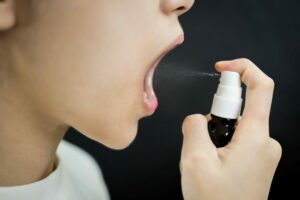
By the way, the application of your headache spray is very simple: The spray is simply sprayed into the mouth according to the dosage instructions on the bottle. In order to achieve the best possible effect and to be able to optimally counteract the causes, we recommend using the spray over a longer period of at least six to eight weeks. As a kind of cure, you spray 3×3 sprays daily.
FAQ: Questions and answers about homeopathy for hay fever

What natural remedy helps with hay fever?
In case of allergies, natural remedies that strengthen the immune system, for example, vitamin C or even the intake of honey or propolis, which are considered natural antihistamines, have proven to be effective.
What home remedies help with hay fever?
Steam baths or inhalations help to clear the nose. A nasal rinse with salt water flushes out pollen and has a soothing effect on the inflamed mucous membrane. Cool compresses relieve eye itching. The vapors of essential oils such as peppermint or eucalyptus are also often found pleasant in pollen allergies.
What globules for hay fever?
Depending on the type of symptoms, globules can have a supportive and soothing effect on pollen allergy. Thus, numerous homeopathic active ingredients such as Allium cepa, Arsenicum album, Euphrasia (eyebright) or Galphimia glauca (Lesser laburnum) have proven themselves as allergy helpers, as they can reduce allergy susceptibility and alleviate discomfort.


